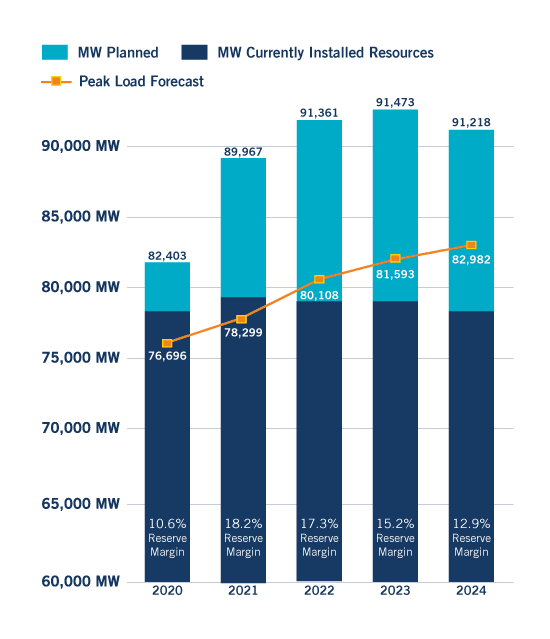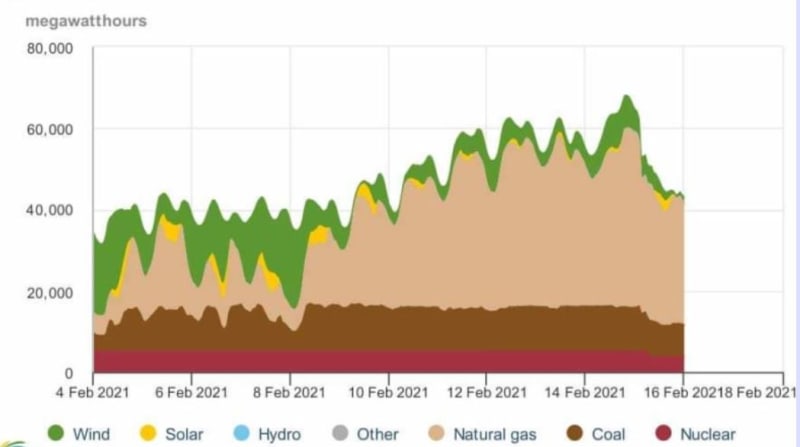LittleInch
Petroleum
To get back to the real issue in Texas, it was that the combined gas and electricity system could not meet demand regardless of price.
The extreme conditions experienced went outside the bounds of the market system and it essentially failed.
This is compounded by ERCOT not being able to or not willing to pay for standby power which is not actually generating, which is what a lot of other grid operators do. So essentially an insurance policy. Insurance policies cost money. But no insurance then in the event of failure or incident, you're on the hook for the entire cost or impact. Texas clearly have decided they don't want to pay the insurance policy premium and hence every 10 years or so will suffer a rolling black out / failure of electricity / energy supply.
Now what power source any standby generators could have used isn't clear as the gas system reduced capacity also. I don't know what entity regulates or runs the natural gas grid in Texas, but I can only imagine it works on the same basis. I'm sure I saw a report in this thread or the part 1 where some guys battled out to their shut in gas wells and hoped in a week to pay back the cost of buying them based on the natural gas price being offered for variable supply / spot market prices.
Whether Texas or ERCOT now decide to do it differently I don't know, but this is a regulated market, just with much wider bands and a "light touch" by the regulator / grid company who rely on market forces to balance the grid instead of planned capacity and back ups being paid to stand idle ready to spring into life when required maybe for one week a year.
Given the switch to a more variable, but low cost, electricity supply from solar and wind, this is causing headaches all over the world for grid operators used for decades to large reliable plants delivering fixed quantities of electricity. There is no one answer.
Remember - More details = better answers
Also: If you get a response it's polite to respond to it.
The extreme conditions experienced went outside the bounds of the market system and it essentially failed.
This is compounded by ERCOT not being able to or not willing to pay for standby power which is not actually generating, which is what a lot of other grid operators do. So essentially an insurance policy. Insurance policies cost money. But no insurance then in the event of failure or incident, you're on the hook for the entire cost or impact. Texas clearly have decided they don't want to pay the insurance policy premium and hence every 10 years or so will suffer a rolling black out / failure of electricity / energy supply.
Now what power source any standby generators could have used isn't clear as the gas system reduced capacity also. I don't know what entity regulates or runs the natural gas grid in Texas, but I can only imagine it works on the same basis. I'm sure I saw a report in this thread or the part 1 where some guys battled out to their shut in gas wells and hoped in a week to pay back the cost of buying them based on the natural gas price being offered for variable supply / spot market prices.
Whether Texas or ERCOT now decide to do it differently I don't know, but this is a regulated market, just with much wider bands and a "light touch" by the regulator / grid company who rely on market forces to balance the grid instead of planned capacity and back ups being paid to stand idle ready to spring into life when required maybe for one week a year.
Given the switch to a more variable, but low cost, electricity supply from solar and wind, this is causing headaches all over the world for grid operators used for decades to large reliable plants delivering fixed quantities of electricity. There is no one answer.
Remember - More details = better answers
Also: If you get a response it's polite to respond to it.


